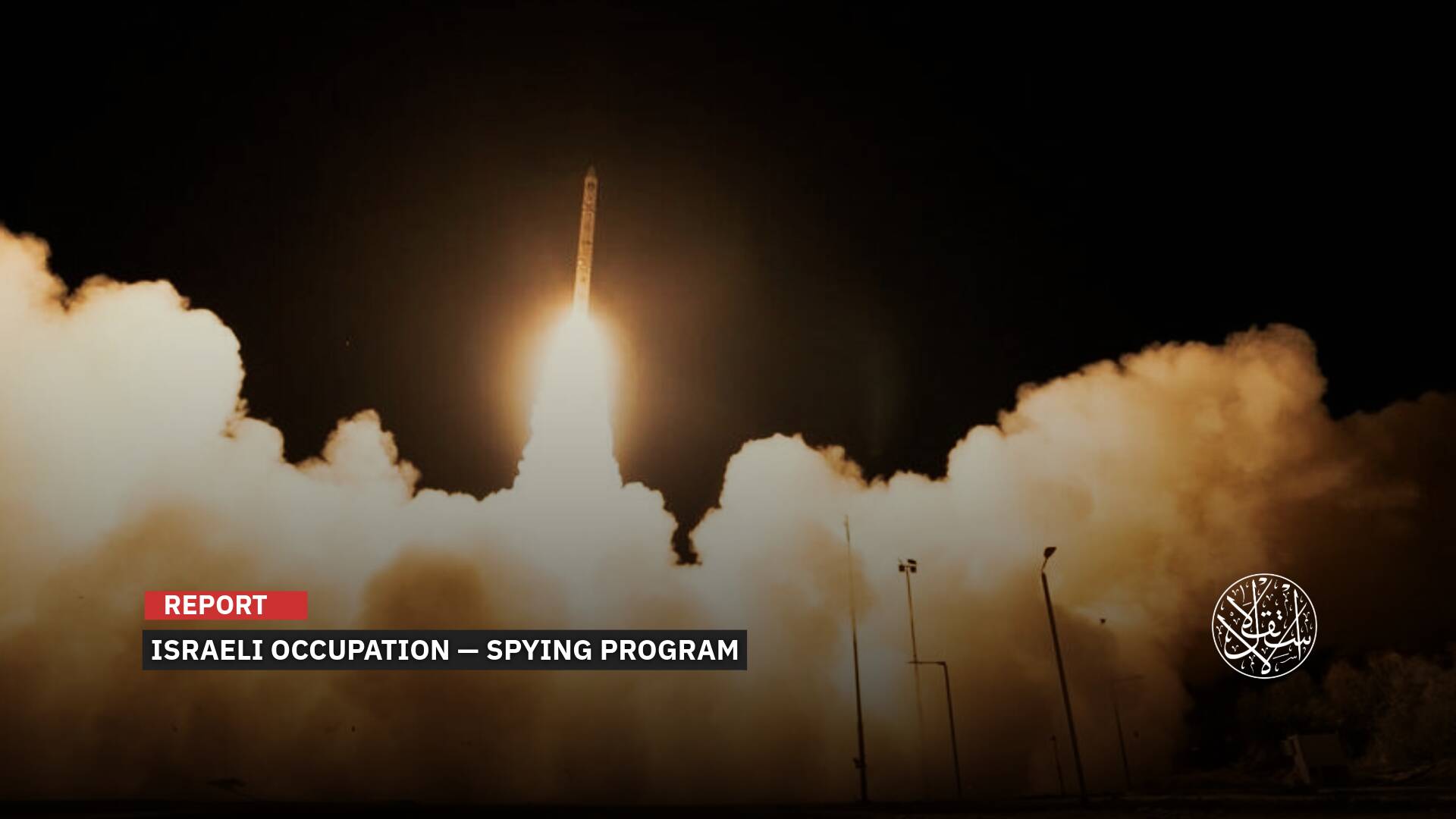U.S. Arms Sales to 'Israel' Spark Legal Challenges and Political Fallout

This list wouldn't be needed if the Biden administration followed U.S. arms export laws.
On February 24, 2025, Donald Trump’s administration scrapped a legal directive introduced under Joe Biden, which had aimed to “ensure that U.S. weapons were not used by allies in violation of international humanitarian law.”
Biden had issued the directive in February 2024 in an attempt to reconcile his administration’s unwavering support for "Israel’s" genocidal war on Gaza with its purported “concerns” over the tens of thousands killed and wounded.
In contrast, Trump—championing his “America First” foreign policy—appears to see no need for even a thin humanitarian veneer to justify his administration’s actions.
Biden’s directive was rooted in existing arms transfer laws, which require recipient states to provide written assurances that U.S.-made weapons will not be used in breaches of international humanitarian law.
The Biden administration had previously acknowledged that its review of the directive had found evidence of "Israel" using U.S.-supplied weapons in violation of international law. However, officials claimed they lacked “sufficient information” to make definitive legal determinations regarding "Israel’s" compliance.
With the exception of a single shipment of 2,000-pound bombs, which Biden’s administration briefly withheld in the spring of 2024, U.S. military aid to "Israel" continued unabated throughout the war on Gaza. That shipment, too, was swiftly cleared for delivery by Trump shortly after his return to office.
Analysts see Trump’s decision to scrap Biden’s directive as nothing more than the removal of a flimsy American facade—one that had served as a cover for Washington’s ongoing support for "Israel’s" genocidal war on Gaza.

Trump Ends Restrictions
Reacting to the move, The Times of Israel reported on February 25 that “Trump rips up Biden memo aimed at Israel on rights abuses using U.S. arms.”
Biden’s directive was essentially a letter sent by then-Secretary of State Antony Blinken and former Defense Secretary Lloyd Austin to "Israel," warning that arms supplies could be withheld under U.S. national security regulations linking weapons exports to human rights compliance.
Dated October 13, 2024, the letter stated that “the United States believes Israel is obstructing humanitarian aid to Palestinians.”
It threatened to cut off military assistance unless "Israel" expanded aid access within 30 days, in line with U.S. law and national security guidelines on arms transfers.
But the directive—intended to prevent the transfer of U.S. arms to "Israel" if it violated American and international laws concerning the killing of civilians—was never enforced.
Blinken maneuvered around the 30-day deadline, declaring that "Israel" had complied—despite U.S. and international organizations, as well as lawmakers, stating otherwise.
In effect, the directive carried little weight, briefly delaying a shipment of two-ton bombs before they were ultimately delivered to "Israel" before Biden’s term ended.
Biden’s directive had imposed additional restrictions on U.S. arms transfers, requiring recipient nations to provide written assurances that they would not use American weapons in violations of international humanitarian law.
According to The Washington Post, Biden’s stated objective was “to pressure Israel to facilitate the delivery of humanitarian aid in Gaza”—a key source of diplomatic friction between Washington and "Tel Aviv," as U.S. complicity in the war on Gaza became increasingly evident.
“Critics said the Biden administration failed to use its own rules to effectively improve conditions for civilians in Gaza.”
Sarah Yager, Washington director of advocacy group Human Rights Watch, said the memo “wouldn’t have been necessary if the Biden administration had followed U.S. laws on arms transfers.”
“Will you show the American people that you will abide by U.S. laws when sending weapons to allies?, ” Yager asked, highlighting “the moral and strategic costs of abandoning an ideal.”
In a piece for Foreign Affairs published on January 14, 2025—before Trump returned to office—Yager accused Biden of betraying the human rights principles he had claimed to champion. She argued that Biden had used human rights as a political tool to secure the presidency, while suggesting that a second Trump term would likely see even fewer efforts to uphold such values.
Unsurprisingly, Trump’s decision to revoke Biden’s directive was welcomed by Republican lawmakers, who dismissed it as “unnecessary bureaucratic hurdles.”
Meanwhile, Biden’s failure to enforce U.S. laws on arms exports drew widespread criticism. Democratic Senator Chris Van Hollen went so far as to declare that Biden’s actions had “damaged U.S. national security and global standing” and constituted “a blatant disregard for American values.”

Trump Boosts Arms
Under Biden’s directive, the Trump administration would have been required to submit a report to Congress in the coming months assessing whether "Israel" was using U.S. weapons in crimes against humanity in Gaza. Rather than face that scrutiny, Trump moved swiftly to scrap the directive altogether.
This was not Trump’s first move in support of "Israel" but part of a broader strategy to dismantle restrictions designed to safeguard human rights in military conflicts, according to U.S. media reports.
On February 8, 2025, Trump bypassed congressional oversight to approve a $7 billion arms deal with "Israel," including thousands of Hellfire missiles and bombs—just days after meeting with Israeli Prime Minister Benjamin Netanyahu.
Then, on February 16, Israeli Ministry of Defense confirmed the arrival of a shipment of MK-84 bombs from the U.S., a delivery greenlit by Trump after it had been suspended by the Biden administration in 2024.
The MK-84 is one of the most destructive unguided bombs in the U.S. arsenal, weighing approximately 907 kilograms and packed with 429 kilograms of high-explosive material.
The bomb—part of the Mark 80 series—was widely used by the U.S. military during the Vietnam War. When dropped, it can create a 15-meter-wide crater, penetrating up to 38 centimeters of steel or over three meters of reinforced concrete, making it a devastating weapon against fortified targets.
Beyond arms sales, Trump had already signaled his disregard for human rights by signing an executive order withdrawing the U.S. from the United Nations Human Rights Council.
During his first term, he loosened restrictions on military commanders conducting operations against ISIS and other groups, while introducing a new conventional arms transfer policy that prioritized economic benefits over civilian protection and human rights concerns.

U.S. Arms Controversy
U.S. laws have long tied arms exports to human rights compliance, requiring recipient countries to avoid using American weapons in ways that violate international humanitarian law.
However, Biden introduced a key change with National Security Memorandum 20 (NSM-20), signed in 2024. For the first time, all countries receiving U.S. weapons were required to provide a written commitment that they would not use them to target civilians or restrict humanitarian aid.
While U.S. laws had already required recipient countries to use American weapons in accordance with international law, the concept of a “written commitment” was new. So too was Biden’s directive instructing the State Department to submit regular reports to Congress on compliance.
Trump’s decision to repeal the directive—removing the requirement for the State and Defense Departments to report on whether U.S. arms recipients were adhering to humanitarian law—sparked outrage among lawmakers and foreign policy experts.
Senator Chris Van Hollen, a key advocate for the directive, condemned its repeal as “shameful”, arguing that it undermines both U.S. national security and global human rights efforts, according to Straight Arrow News on February 25, 2025.
Christopher Le Mon, a former senior official in the State Department’s human rights division, went further, warning that the repeal signaled that “the U.S. government simply does not care whether its weapons are used in violations of international law.”
With their government showing indifference, American citizens attempted to take matters into their own hands, filing a class-action lawsuit against the U.S. government. Their case argues that Washington’s unrestricted military aid to "Israel"—resulting in the mass killing of Palestinians—must be halted.

A newly introduced National Security Memorandum (NSM) requires the U.S. State Department to report to Congress on "Israel’s" adherence to American and international law when using U.S.-supplied weapons.
This policy regulates the sale of American military equipment, overseen by the Departments of Defense, State, and Commerce, with an estimated value of $150 billion.
The directive emphasized the need to “strengthen compliance with international humanitarian law and the law of armed conflict” in U.S. arms sales while also “promoting respect for human rights, democratic governance, and the rule of law worldwide.”
Under this policy, the U.S. is required to block arms exports “if they are deemed likely to be used in acts of genocide, crimes against humanity, or serious violations of the Geneva Conventions,” according to the White House.
"Including attacks on civilian targets, gender-based violence, or severe violence against children."
Following the escalation of violence in Gaza after Operation al-Aqsa Flood, concerns over the U.S.’s role in supplying arms to "Israel" have intensified. Critics argue that, despite the new policy, the U.S. has failed to enforce restrictions on arms transfers to "Israel," making it complicit in alleged war crimes.
Other relevant legislation that could be used to restrict arms sales to "Israel"—but has not been enforced—includes Section 620I of the Foreign Assistance Act and the Leahy Law.
Both laws prohibit the U.S. government from providing military aid or selling weapons to countries that restrict humanitarian assistance or violate human rights.
Frustrated by Washington’s inaction in enforcing these laws against those using American weapons in mass atrocities, more than 500 California residents took the unprecedented step of filing a class-action lawsuit against two congressional representatives.
The lawsuit accuses the lawmakers of complicity in Palestinian killings, arguing that their votes in favor of U.S. military aid to "Israel" make them legally accountable for war crimes.
The charges brought against the lawmakers—and by extension, the U.S. government—include violations of the Foreign Assistance Act, the Arms Export Control Act, the U.S. War Crimes Act, the Leahy Law, and the Genocide Convention Implementation Act, along with multiple international treaties.
The lawsuit, filed by California residents on December 19, 2024, targets Representatives Jared Huffman and Mike Thompson for their votes in favor of the Supplemental Security Appropriations Act for Israel, which allocated $26.28 billion in military aid to "Israel" in April 2024.












